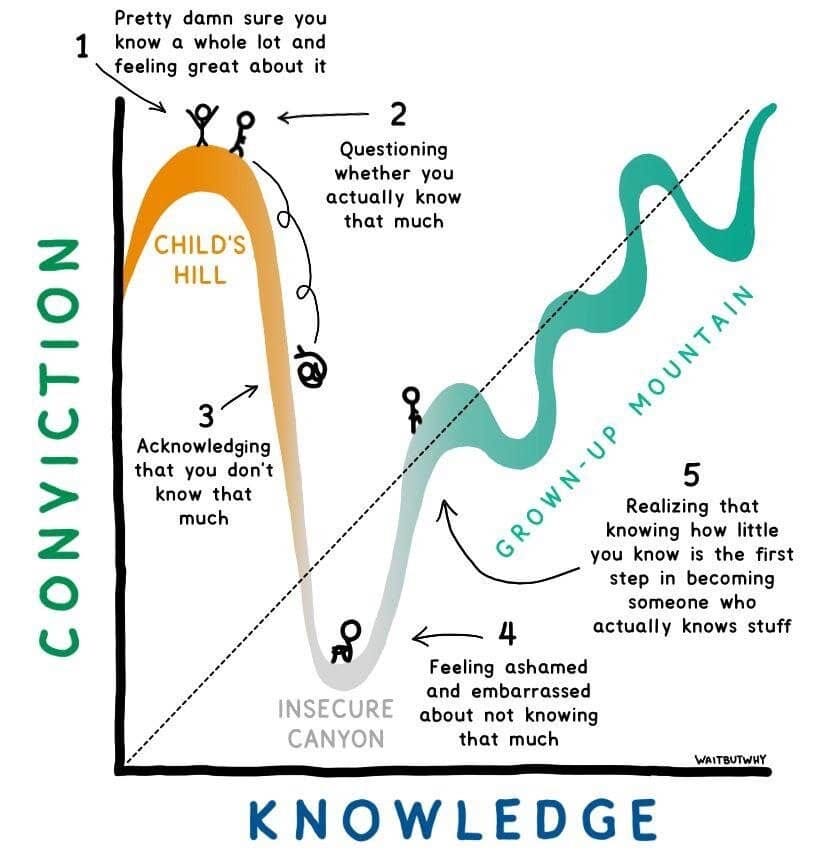read and listen on sahilbloom.com
read time 2 minutes
Welcome to The Curiosity Chronicle, a newsletter where I provide actionable ideas to help you build a high-performing, healthy, wealthy life.
Forwarded this email? Join 800,000+ readers here.
This is the biggest sale ever on my book: 50% off! Now's the time to grab a few copies for yourself, family, or friends before the sale expires.
Order The 5 Types of Wealth Now!
The Dunning-Kruger Effect: The Psychology of Overconfidence
Have you ever grown frustrated by the observation that the people who know the least seem to be the most confident in their knowledge?
You're not crazy. It's a very real, and very damning, psychological phenomenon.
In 1999, researchers David Dunning and Justin Kruger studied the bizarre case of McArthur Wheeler, a would-be bank robber who was caught after robbing two banks in broad daylight.
Wheeler hadn't worn a mask, but instead had rubbed lemon juice on his face, believing it would make him invisible to cameras. He knew lemon juice was used as invisible ink, so inferred that it could be used to make himself invisible to security cameras. Even after he was caught, he was legitimately incredulous that his plan with the lemon juice hadn't worked.
The researchers set out to determine whether people with low ability tend to overestimate their competence.
They ran experiments that plotted actual performance in a range of pursuits against perceived performance.
The key findings:
Bottom quartile performers dramatically overestimated their performance
Top quartile performers slightly underestimated their performance
In simple terms, low performers are dramatically more overconfident than high performers.

Dunning and Kruger wrote, "The same incompetence that leads them to make wrong choices also deprives them of the savvy necessary to recognize competence, be it their own or anyone else's."
This is a polite scientific phrasing for double whammy: The low competence also leads to an inability to recognize that low competence.
Here's my rudimentary Dunning-Kruger Effect toolkit:
Identify your circle of competence and ruthlessly protect its boundaries. Know what you know (and what you don't!).
Get comfortable saying "I don't know" about anything.
Make a habit of regularly questioning your assumptions.
Use this toolkit regularly. Recognize the signs. Fight back.
P.S. My friend Tim Urban created this beautiful visualization of a different but related idea of one's own journey in accumulating knowledge in a given domain. Shoutout to everyone out there like me who perpetually finds themselves in the Insecure Canyon.





This is awesome. I was wondering why the people of low competence seem to thrive on ignorance of the said fact and whether the fake it til you make it paradigm was real and a reality. This says otherwise. I feel much more comfortable saying I don’t know , freeing myself from having to compete with and be accepted by incompetent people knowing it is the foundation and space for actual knowing.